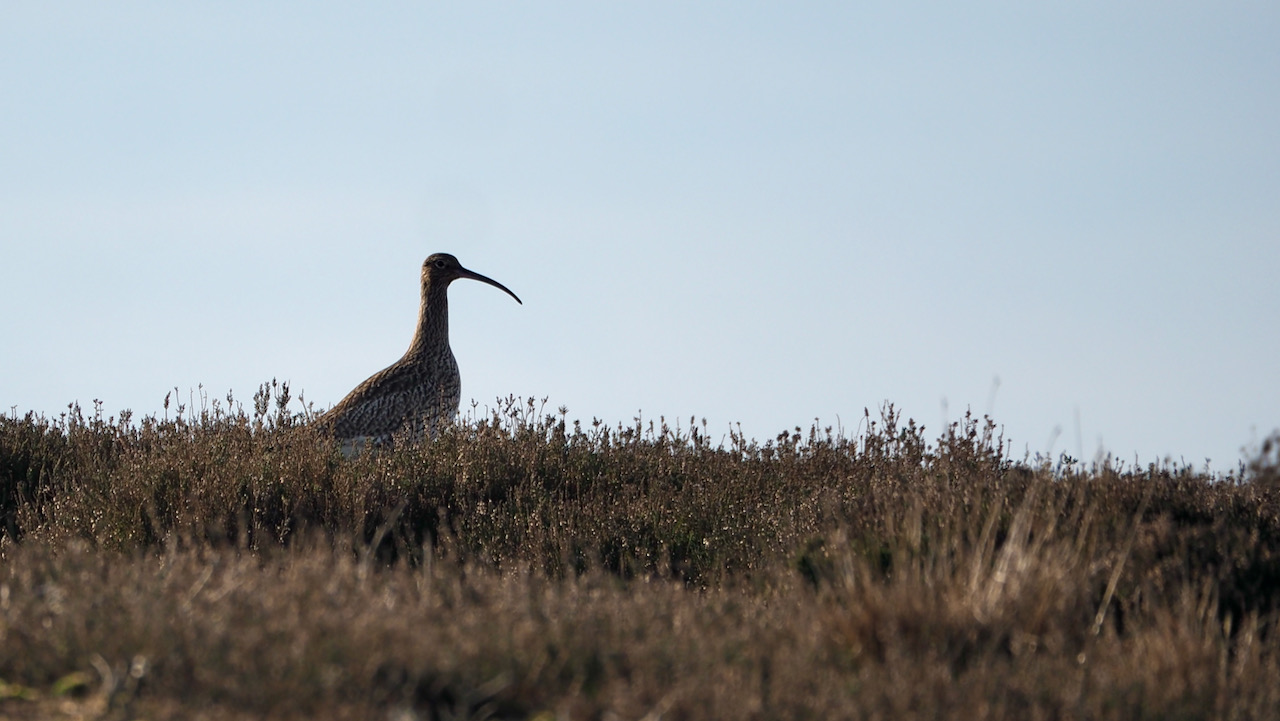No plaintive cry echoed through the air. It was the silhouette that gave it away: that lengthy and slender bill that bent downward. I casually approached at an oblique angle, yearning for a better shot. Amidst the heather, its speckled brown feathers made spotting it quite a challenge. Alas, my audacious closeness prompted it to soar away, departing in silence.
The curlew stands as the iconic bird of the moorlands. Nationally, their numbers are in decline primarily because of the loss of their natural habitats, yet on the North York Moors, glimpsing them is not an unusual occurrence. Curlews are migrants, though this one likely spent the winter near the coast.
While curlews possess a distinctive call, I did not catch a note of it today. Supposedly, their name is onomatopoeic, mirroring the drawn-out sound of their call, which is a prolonged “cur-leeee.”
However, an alternate perspective suggests that its origins may lie in the Old French term ‘corliu,’ meaning ‘messenger,’ derived from ‘courir,’ ‘to run.’1‘Eurasian Curlew’, Wikipedia (Wikimedia Foundation) <https://en.wikipedia.org/wiki/Eurasian_curlew#Predation:~:text=The%20English%20name%20%22curlew%22%20is%20imitative%20of%20the%20Eurasian%20curlew%27s%20call%2C%20but%20may%20have%20been%20influenced%20by%20the%20Old%20French%20corliu%2C%20%22messenger%22%2C%20from%20courir%20%2C%20%22to%20run%22> [accessed 25 February 2024]
In the northern dialect, the curlew answers to the name ‘whaup.’ A Scotsman’s discerning palate led him to favour “the wheeple (whistle) of a whaup” over “a’ the nightingales that ever sang.“2Brockett, J.T., “A Glossary of North Country Words in Use; with their Etymology, and Affinity to other Languages; and Occasional Notices of Local Customs and Popular Superstitions”, Page 328. E. Charnley. 1829. https://books.google.co.uk/books?id=6-cQAAAAYAAJ
A noteworthy encounter marking my first sighting of a curlew this year.
- 1‘Eurasian Curlew’, Wikipedia (Wikimedia Foundation) <https://en.wikipedia.org/wiki/Eurasian_curlew#Predation:~:text=The%20English%20name%20%22curlew%22%20is%20imitative%20of%20the%20Eurasian%20curlew%27s%20call%2C%20but%20may%20have%20been%20influenced%20by%20the%20Old%20French%20corliu%2C%20%22messenger%22%2C%20from%20courir%20%2C%20%22to%20run%22> [accessed 25 February 2024]
- 2Brockett, J.T., “A Glossary of North Country Words in Use; with their Etymology, and Affinity to other Languages; and Occasional Notices of Local Customs and Popular Superstitions”, Page 328. E. Charnley. 1829. https://books.google.co.uk/books?id=6-cQAAAAYAAJ

Leave a Reply